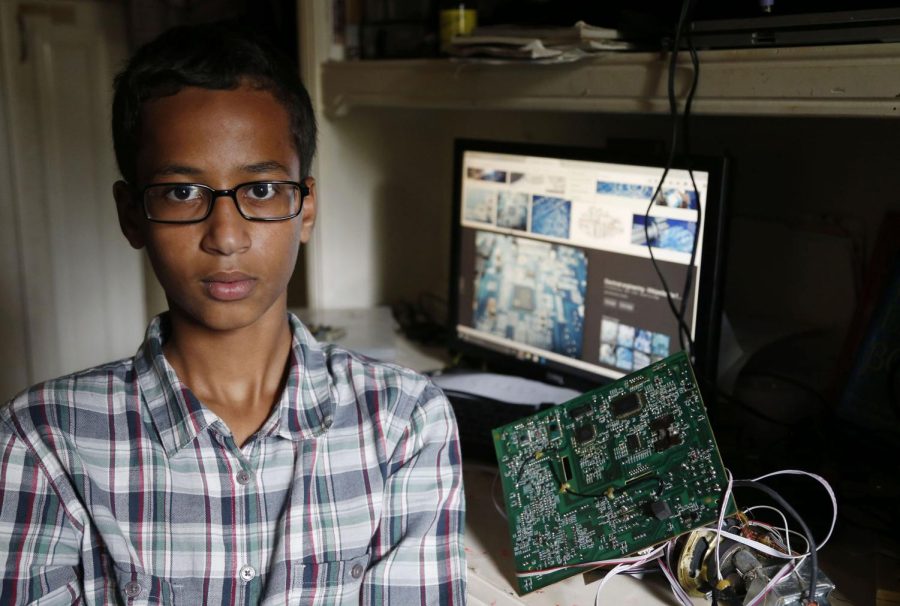Our View: We stand with Ahmed in light of profiling issues
Irving MacArthur High School student Ahmed Mohamed, 14, poses for a photo at his home in Irving, Texas, on Tuesday, Sept. 15, 2015. Mohamed was arrested and interrogated by Irving Police officers on Monday after bringing a homemade clock to school.
September 16, 2015
As nearly any controversy does these days, on Monday an incident in Texas sparked a social media movement on Twitter that’s still trending as of Wednesday.
The situation ignited a debate on whether or not a Texas 14-year-old was wrongfully profiled given the fact he’s Muslim.
The tweets, with the hashtag “#IStandWithAhmed,” were inspired by Ahmed Mohamed, who was arrested after bringing his homemade clock into school.
Police officials and administration contended the clock initially appeared to be a bomb, and Ahmed was escorted from the school and told that he was under arrest for a faux bomb threat. Although the charges have been dropped, he’s suspended from his school until Thursday.
CNN reports approximately 100,000 tweets have sprung up weighing in on the situation, including a tweet from President Barack Obama that reads, “Cool clock, Ahmed. Want to bring it to the White House? We should inspire more kids like you to like science. It’s what makes America great.”
We, as an editorial board, tend to agree that Ahmed’s work should be encouraged, not just for his own growth as a future engineer, but for other minority students like him pushing back against public perception.
It may come to be found that the police, administration and the teacher who originally called for the clock’s confiscation did so without the consideration of Ahmed’s background, but the moment absolutely begs the question of stereotyping.
Although we appreciate the concept of a school administration looking after the well-being of its students, we find this instance insinuates profiling more than it does a school protecting its kids.
Perhaps it was a large misunderstanding as the local police department now says. But if stereotyping did indeed drive the motives of those who handcuffed Ahmed, we find the roots of the action absolutely deplorable.
We hope that if there’s any positive from a student’s creativity being squashed and then publicized widely across the country (other than the fact Ahmed’s going to visit the White House next month,) it’s that we as a nation begin to have moral and ethical discussions regarding profiling.
The above editorial is the consensus opinion of the editorial board of The Kent Stater.

























